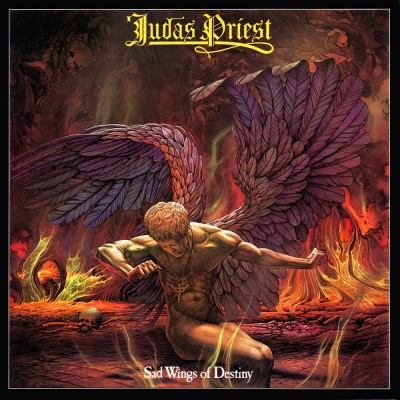
Sad Wings of Destiny
by Steve Huey The groundbreaking Sad Wings of Destiny was the first great Judas Priest album, simultaneously taking the entire heavy metal genre to new depths of darkness and new heights of technical precision and musicality. Sad Wings of Destiny sounded like little else on the metal scene in 1976: it was heavy and chillingly bleak, in an almost unrelenting way that hadn't been seen since Black Sabbath's heyday, but its arrangements were much more intricately crafted, its sonic textures more varied, its grooves tight and menacing, yet tinged with a gothic elegance under the raging torrent of guitar riffs. Just as importantly, the more prog rock-influenced sections of Rocka Rolla have been brought under control, with the extended pieces displaying a newfound focus and direction, as well as complexity. Perhaps the only flaw lies in the album's pacing, which drags down some of the momentum toward the second half by keeping the slower pieces too close together (an effect not helped by the less-than-melodic rocker "Genocide"). However, virtually every other aspect of the album points to a stunning artistic leap forward. The opener, "Victim of Changes," was an instant metal classic, with Rob Halford delivering an electrifying performance; elsewhere, shorter songs like "The Ripper" and "Deceiver" come on like lightning-quick sneak attacks, ending before you know what's hit you. There are also two delicate, prog-style ballads, "Dreamer Deceiver" and the piano-based "Epitaph," demonstrating a compelling emotional range. Although neither as commercially successful nor as technically flashy as subsequent releases, Sad Wings of Destiny was an important milestone in the eventual development of the progressive metal subgenre, and established a standard of excellence to which Judas Priest would adhere through the remainder of the '70s.
